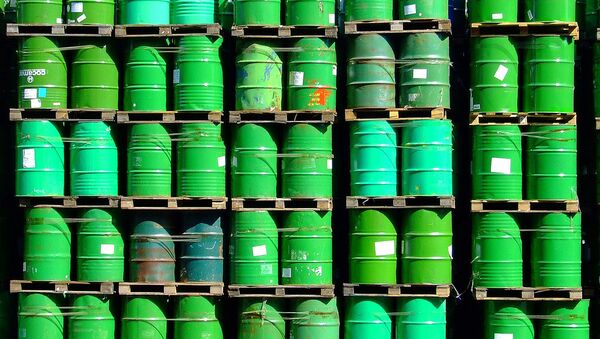The US economy will most likely benefit from the lifting of the ban because the net benefit from having lower oil would generate lower prices for the US consumers, according to Gregory Daco, the head of US macroeconomics at Oxford Economics.
"All crude oil producers will see higher prices and produce more oil. All consumers will see lower prices for petroleum product," Stephen Brown, a visiting fellow at the Resources for the Future independent nonprofit organization, told Sputnik.
WINNERS AND LOSERS
"All firms that have a presence in refining will see increased costs for that segment, but any firm with a presence in both production and refining will likely come out about the same," Mason told Sputnik.
"At the same time, some refiners that have access to lower price crude, but are able to charge international prices for their refined products will lose," Stephen Brown said, adding that the increased production and consumption of oil would increase environmental impacts.
Daco stressed that the US producers that have high marginal costs of production would not be competitive in the world market, because the US production cost sometimes reaches $70-80 per barrel, while the marginal costs on the global market averages $30-40. So that the benefit is likely to come to the producers that have the lowest marginal costs.
GLOBAL OIL PRICE
Analysts expect a slight decrease in global oil price following the potential lifting of the export ban. Mason explained that, as US oil exports would likely make their way into the spot market in Europe, it would push down the Brent price, generally regarded as the benchmark international price.
"I think generally the tendency will be down actually, because part of the additional production that is being pumped out of the US is staying within the US," Daco said.
Current global oil prices have almost halved compared to summer 2014, dropping from $100 to $45 per barrel for Brent crude in the second half of 2014, primarily due to oversupply.




